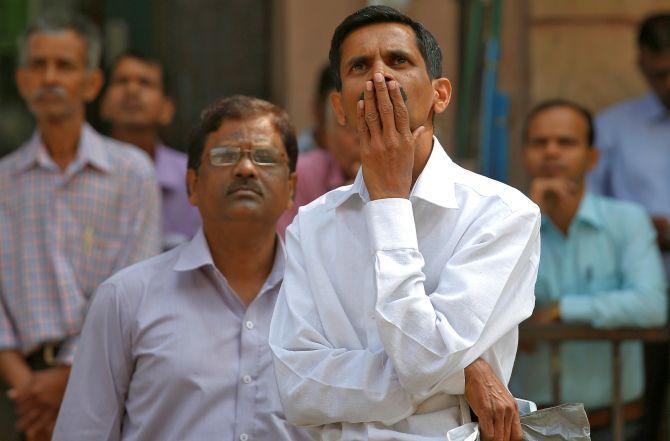Are you holding dud stocks in your portfolio?
Have you bought bluechip stocks at a very high price and their market prices have come down?

Gaurav Garg, head of research, CapitalVia Global Research Limited, will answer your stock market queries.
Please mail us at getahead@rediff.co.in with the subject line 'Ask Gaurav' and Gaurav will offer his unbiased views.
Here's Gaurav's take on the way forward for the Indian stock markets
The monetary policy for second quarter of 2020 remained unchanged with respect to repo rate (the rate at which the RBI lends money to banks); this decision was not unexpected as the RBI has already loosened the noose from the beginning of the pandemic crisis.
The Banker of Banks is of the opinion that the current trend of inflation, though well beyond the acceptable level or comfort zone of the RBI, is generally due to disruption in the supply chain and it expects a gradual decline in the inflation as the unlock process is more or less complete for most of the commercial activities.
If not for the special circumstances (COVID-19) of this year the current policy would have been considered quite expansionary (the sign being a bullish equity market); any more loosening of the repo rate would have only added fuel to the fire.
The current economic decline was mainly due to supply shocks and to a great extent reduced consumption ,but as the unlock phase has started the trend seems to be reversing.
It is a common belief that high inflation generally reduces the investment in the stock markets, but the recent times have stated otherwise there has been steady flow of cash and considerable volume. However, there is always a profound impact of inflation and monetary policy as a whole on the capital markets.
Fundamentally with the change in bank rate, the discount rates to discount the cash flows changes and the valuations of stocks tend to change.
It is well known that during the accommodative or expansionary regime of monetary policy piling on cash is generally not a wise decision as the purchasing power of the money declines and as investments are encouraged, capital market is the most feasible avenue for the public at large (other than traditional investments like bank fixed deposits or gold) by the way of direct investment or through products such as SIPs, ULIPS, mutual funds etc.
Therefore, seeing the current situation a good inflow of capital can be expected into the markets, as the RBI has abstained itself from tweaking the repo rate in order to curb the inflation. The RBI believes that this rise in inflation is due to extraordinary causes and feels that it will be better to tame it organically over a period.
The present policy of no change is a balanced step which has not made capital costly, but at the same time inflation is also left alone to subside normally. This has given possible positive signal for the Indian markets as flow of capital can be expected at least till the next monetary policy committee meeting.
The US Fed has also signaled that it would probably keep the lower rates unchanged through the next year. The increasing uncertainties across the globe has created an environment where this is the only way forward.
The unlock phase is believed to bring back the economy on its pre-COVID tracks, which means the economic uncertainties would be taken care at large and the expected accommodative credit policy regime would ensure cash flows in to the markets.
This gives a optimistic view for the Indian markets for the ongoing quarter and last quarter of 2020-2021.
Photograph: Shailesh Andrade/Reuters








